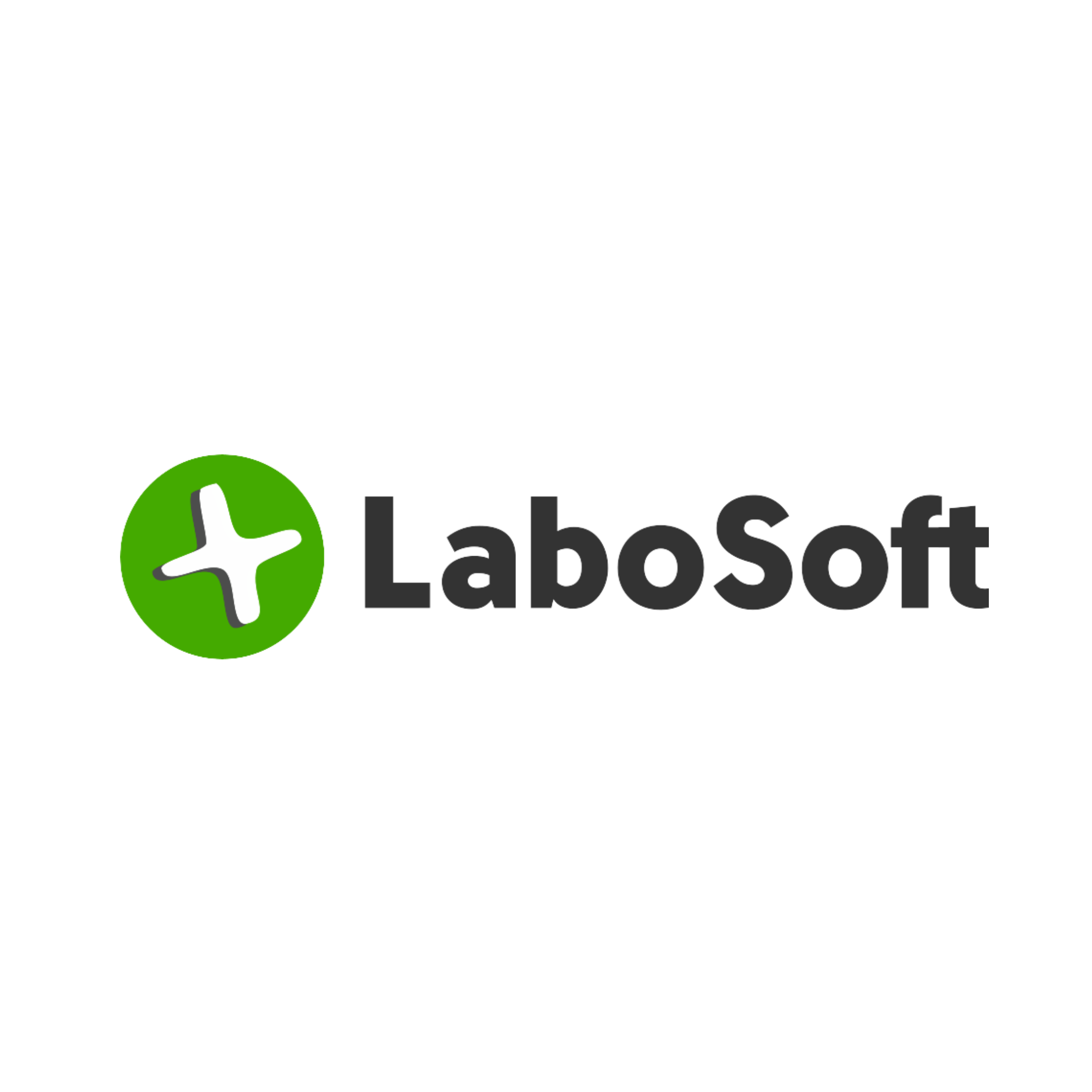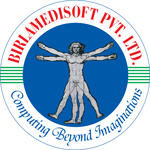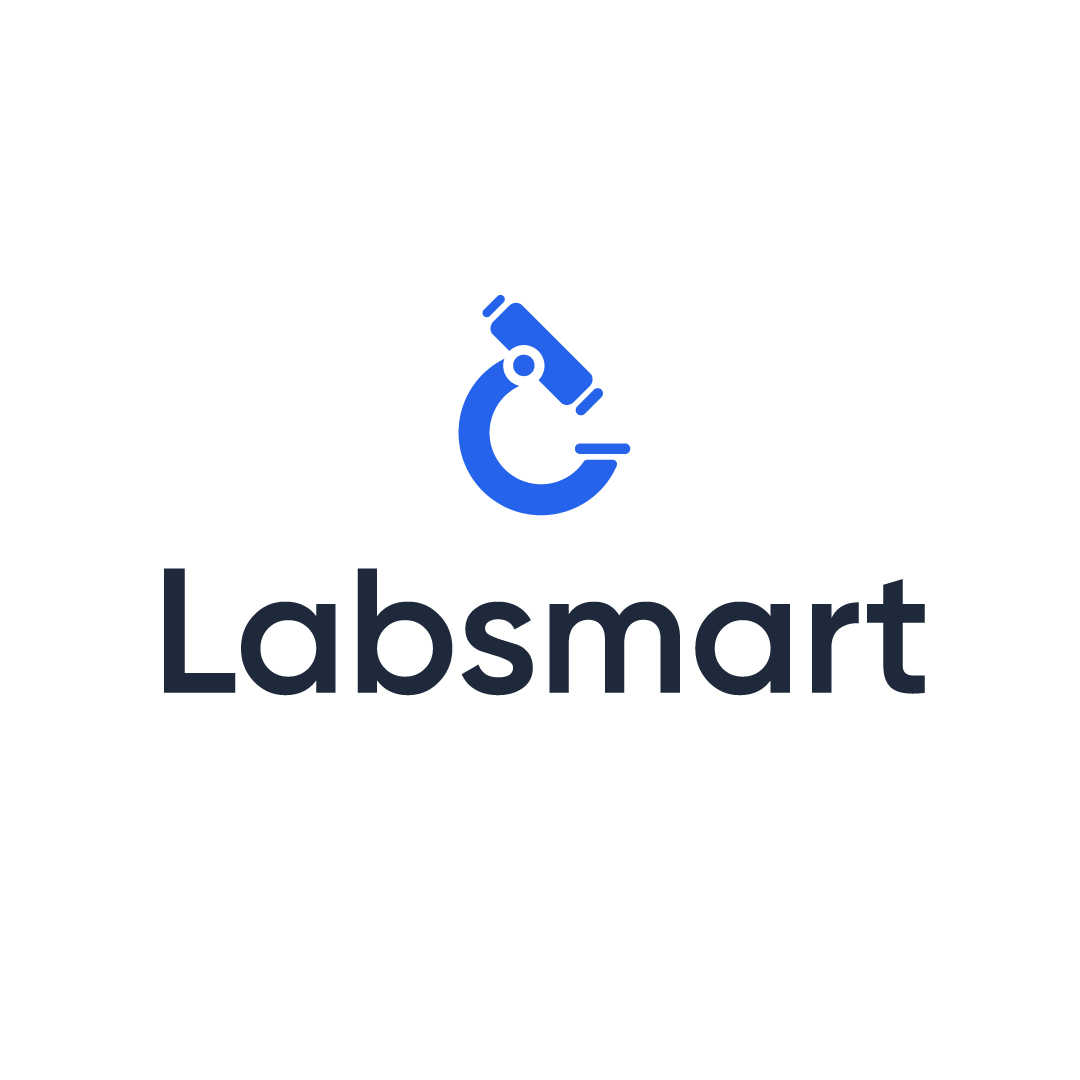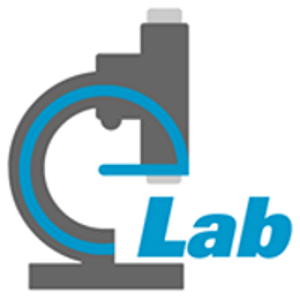Yes, most modern pathology lab software supports multi-device and cross-platform access. This means that the software is compatible with a variety of devices, including desktops, laptops, tablets, and smartphones, as well as operating systems such as Windows, Mac, and Android. This flexibility enables seamless connection and accessibility, allowing lab workers and clinicians to monitor and manage patient data from anywhere and at any time.
List of 20 Best Pathology Lab Software
Pathosys solution for effortless pathology reporting. Say goodbye to the constant need for manual word adjustments - our standardized report layout takes care of that. Experience the freedom of customization with our flexible software, allowing you t...Read More Pathosys Software
LabOS is a software specifically designed to streamline laboratory operations through its diverse features. It allows for real-time tracking of data, integration with lab equipment, and user-friendly interfaces for efficient workflow. By increasing p...Read More LabOS
LaboSoft solution for organizing and overseeing your pathology lab, perfect for small to medium sized labs. This user-friendly software provides a range of cutting-edge features such as a mobile application, administrative dashboard, lab dashboard, a...Read More LaboSoft
ACGIL Pathology Lab - a software solution for SMEs, Enterprises, and Agencies seeking efficient lab management. This comprehensive and advanced software comes equipped with a wide range of features that seamlessly handle all aspects of online medical...Read More ACGIL Pathology Lab
PathoGOLD, the complete laboratory management solution designed specifically for pathology labs. With its streamlined operations and increased productivity, this software is essential for modern diagnostic centers and labs. PathoGOLD ensures precisio...Read More PathoGOLD
SIMPLEX HIMES – is the solution for managing your healthcare facility. This robust Hospital Management System offers a user-friendly interface with advanced features like Patient Management, EMR, LIS, RIS, PACS, RCM, Inventory, Billing, and Ec...Read More SIMPLEX HIMES
Labsmart solution for managing your pathology lab or diagnostic center. Say goodbye to traditional offline software and hello to real-time access to information for doctors and patients. Streamline your lab operations with our online system, eliminat...Read More Labsmart
AP Easy: a cloud-based Laboratory Information System designed specifically for anatomic pathology. Enjoy simplified data management, streamlined workflows, and seamless integration with lab instruments and EHR software. With AP Easy, say goodbye to m...Read More AP Easy
KareXpert Cloud is a EMR/EHR platform for hospitals. Our advanced software is fully compliant with NDHM guidelines and provides access to over 45 specialized templates for efficient management of patient records. Our user-friendly interface enables e...Read More KareXpert Cloud based EMR/EHR
Apex LIS is a laboratory information system that is tailored to the distinct requirements of various laboratory environments. With its extensive compatibility with more than 500 analyzers, customizable workflows, and advanced compliance features, Ape...Read More Apex LIS
Sara Pathology Management solution for your pathology lab needs. Our software effortlessly manages doctors, patients, billing, and reporting, providing a comprehensive system for hospitals and diagnostic centers. Say goodbye to manual processes and h...Read More Sara Pathology Management
Medicare, a top-of-the-line Hospital Management Software designed to digitalize all hospital functions. With this software, you can seamlessly manage doctors orders, patient records, medication history, and employee data all in one place. Say farewel...Read More Medicare
Disa Lab is a laboratory software that offers exceptional efficiency and is perfect for all types of labs. With its affordable yearly payment option and impressive performance, it has become a favored choice in the industry. This advanced software st...Read More Disa*Lab
LigoLab is a LIS & RCM platform that delivers unparalleled flexibility and productivity. Our integrated modules allow for a seamless incorporation of the entire suite of services, eliminating the need for multiple servers, hardware, or interfaces. Fr...Read More LigoLab
BookitLab is a cloud-based lab management software tailored for researchers. With a user-friendly interface and comprehensive services, BookitLab streamlines all your lab processes. Say goodbye to tedious lab management, as BookitLab makes it effortl...Read More BookitLab
Experience the efficiency and simplicity of Quartzy is a Lab Management System. Say goodbye to the hassle of managing lab supplies and samples, and hello to centralized management and streamlined order requests. Our user-friendly interface comes at n...Read More Quartzy
eLab is a lab software, simplifies your laboratory tasks and enhances your reporting and account management capabilities. With eLab, maintaining precise patient records and accessing reports has never been easier. Featuring over 350 pre-configured te...Read More eLab
LabReporter XL the Pathology Reporting Software that simplifies and streamlines the reporting process for pathology, X-ray, ultrasound, and ECG results. Our all-inclusive package comes with a Patient Registration System, Lab Accounting capabilities,...Read More LabReporter XL
LabVantage is a web-based LIMS software designed to optimize lab efficiency and precision. Its automated features, audit capabilities, and seamless integration with instruments and systems simplify lab operations for maximum productivity. Eliminate t...Read More LabVantage
MediXcel LIMS solution for managing laboratory information. With its ability to handle various workflows and facilitate multi-center collaboration, regulatory compliance becomes effortless. Say goodbye to manual data management and hello to efficient...Read More MediXcel LIMS
Learn More About Pathology Lab Software
- What Is Pathology Lab Software?
- What Are The Recent Trends In Pathology Lab Software?
- Benefits Of Using Pathology Lab Software
- Important Factors To Consider While Purchasing Pathology Lab Software?
- What Are The Key Features To Look For In Pathology Lab Software?
- Why Do Businesses Need Pathology Lab Software?
- How Much Time Is Required To Implement Pathology Lab Software?
- What Is The Level Of Customization Available In Pathology Lab Software?
- Which Industries Can Benefit The Most From Pathology Lab Software?
- Conclusion
What Is Pathology Lab Software?
Pathology lab software is a specialized digital solution that streamlines and optimizes a pathology laboratory's procedures and operations. It is a complete and integrated system that automates sample tracking, test result management, inventory control, and patient report preparation. This program uses advanced technologies including artificial intelligence, machine learning, and cloud computing to improve laboratory efficiency, accuracy, and speed.
One of the most important elements of pathology lab software is its ability to store and handle large amounts of data pertaining to patient samples, tests, findings, and other laboratory activities. This provides data integrity, accessibility, and security while removing the need for manual data entry and record-keeping. Furthermore, the platform facilitates smooth communication and collaboration among several departments, including the laboratory, billing, and administrative teams.
Another important feature of pathology lab software is its configurable reporting capabilities. This enables the generation of accurate and complete reports for a variety of stakeholders, including patients, healthcare providers, insurance companies, and regulatory authorities. The program also allows for real-time monitoring of laboratory procedures and performance, which aids in fast decision-making and quality control. Pathology lab software not only improves operational efficiency but also ensures regulatory compliance and quality requirements.
It enables laboratories to arrange and preserve data in accordance with accreditation rules, eliminates human mistake, and lowers the risk of wrong diagnoses and medical errors. entire, pathology lab software is an essential instrument for improving the entire operation of a pathology laboratory. Its extensive features and capabilities increase productivity, accuracy, and compliance, which leads to better patient care and satisfaction. As a buyer, you must thoroughly assess and compare various software packages to determine which one best meets your laboratory's specific objectives.
What Are The Recent Trends In Pathology Lab Software?
Pathology lab software has evolved rapidly in recent years, significantly improving diagnostic testing speed and accuracy. As a buyer, you should stay up to date on industry developments in order to make an informed decision on which software to invest in.
Here are some of the most recent trends in pathology lab software that you should know about:
1. Automation And Integration: One of the most significant trends in pathology lab software is the growing level of automation and integration. With technological improvements, many previously manual operations, such as sample processing and data entry, can now be automated. This not only saves time and avoids human error, but it also enables for more seamless integration of various lab technologies. For example, a lab can now transfer data from its instrument to the program without the need for manual entry.
2. Artificial Intelligence: Artificial intelligence (AI) is being used in a variety of businesses, including pathology labs. Artificial intelligence programs can now assess complex data from tests and scans more accurately than humans. This not only accelerates the diagnosis procedure, but also enables pathologists to make more precise diagnoses.
3. Mobile Applications: Another trend in pathology lab software is the creation of mobile applications. These apps enable lab personnel to view and enter data on the fly, which is especially beneficial for remote or point-of-care testing. Furthermore, some software now includes patient portals, which allow patients to examine their test results on mobile devices.
4. Virtual Pathology: Virtual or digital pathology is gaining popularity due to its numerous advantages. Rather than using traditional slides, this method analyzes digital images of tissue samples during the diagnosis procedure. This not only saves time and costs, but also facilitates the exchange of photographs for consultations or second perspectives.
5. Cloud-Based Solutions: Many pathology lab software vendors now provide cloud-based solutions. This means that the software is hosted on a distant server and accessible from anyplace with an internet connection. This not only saves space and computer resources, but it also facilitates cooperation and remote data access.
Benefits Of Using Pathology Lab Software
Advances in technology have transformed the healthcare business, making it more efficient and accurate. In the realm of laboratory medicine, pathology lab software has considerably improved how medical practitioners handle and analyze patient samples. This software has various benefits that improve a pathology lab's overall workflow, making it a crucial investment for any laboratory trying to stay competitive in today's dynamic healthcare environment.
1. Streamlined Sample Management: Pathology lab software provides a comprehensive sample management system, from sample collection to results delivery. This eliminates the need for human data entry, which is error-prone and time consuming. The software stores all essential information about a sample electronically, making it easier to track, retrieve, and update results.
2. Increased Accuracy And Efficiency: Using software reduces the possibility of human error in managing and interpreting patient samples. It follows a systematic procedure, which results in consistent, accurate results and reduces diagnostic delays. Furthermore, automating procedures like result calculations and report production minimizes the workload of lab personnel, allowing them to focus on other important responsibilities.
3. Cost-Effective: Pathology lab software eliminates the requirement for physical storage of patient samples and paper data. Furthermore, it reduces the need for human labor, resulting in long-term cost savings. Cloud-based software eliminates the need for significant initial hardware and infrastructure investments, making it a more cost-effective solution for smaller labs.
4. Improved Data Security: Patient information is vital and must be safeguarded from unwanted access. Pathology lab software has strong security features such as user authentication, data encryption, and access controls to ensure that patient data is safe and secure.
5. Real-Time Access To Results: One of the most major advantages of using pathology lab software is the ability to access results in real time. Physicians can access results remotely, reducing the need for patients to physically visit the lab to obtain results. This improves the patient experience and enables speedier diagnosis and treatment.
6. Integration With Other Systems: Pathology lab software can work with other hospital information systems including electronic health records and billing systems. This interoperability facilitates communication and data sharing within departments, hence increasing coordination and patient care.
Important Factors To Consider While Purchasing Pathology Lab Software?
When choosing pathology lab software, customers should examine a number of crucial considerations.
This includes:
1. Customization Options: Each pathology lab is unique, so the software should be able to adapt to the lab's specific demands and operations. Look for software that includes customizable features like templates, report formats, and user-defined fields.
2. User-Friendly Interface: The software's interface should be simple to use and understand. It should also provide drag-and-drop capabilities and the option to save commonly used settings for easier access.
3. Integration Capabilities: Pathology lab software should be compatible with other lab systems and equipment, such as electronic health record (EHR) and laboratory information management systems (LIMS). This enables a smooth flow of data while reducing the need for human data entry.
4. Data Management And Security: When sensitive patient data is involved, it is critical to select software with strong data management and security capabilities. This includes backup and restore capabilities, as well as access restrictions to guarantee that data is only accessible to authorized persons.
5. Support And Training: When selecting a software vendor, ensure that they provide enough support and training for the product. This allows customers to fully utilize the product and troubleshoot any issues that may emerge.
6. Scalability: As your pathology laboratory expands, so will your software requirements. As a result, it is critical to select scalable software that will allow your lab to grow in the future.
7. Price: While price should not be the sole deciding factor, it is crucial to think about the cost of the software as well as any additional expenses like maintenance and support. Look for software that is reasonably priced for the features and capabilities it offers. By taking these crucial elements into account, you can guarantee that the pathology lab software you select is dependable, efficient, and matches your lab's specific requirements. Make an informed selection by conducting careful research, comparing several options, and selecting a reliable provider.
What Are The Key Features To Look For In Pathology Lab Software?
When selecting pathology lab software, there are a few crucial features to examine to guarantee that you are obtaining the finest solution for your individual requirements. These features can significantly improve the productivity, accuracy, and overall performance of your lab operations.
The following are the top characteristics to look for in pathology lab software.
1. Electronic Health Records (EHR) Integration: Working with EHR systems is critical for efficient and accurate data sharing between your lab and healthcare providers. Look for software that connects effortlessly with leading EHR platforms, resulting in a smooth and efficient workflow.
2. Customization And Flexibility: Each lab has distinct requirements and workflows. Look for software with customization possibilities, which will allow you to adjust the system to your lab's exact requirements. This also enables you to alter and adjust the program as your lab's requirements evolve over time.
3. Smart Scheduling And Resource Management: Advanced lab software should have smart scheduling and resource management features. This includes automated scheduling, resource optimization, and real-time monitoring of lab equipment and supplies. This will allow you to increase efficiency while minimizing errors.
4. Billing And Invoicing: To properly handle your lab's finances, you should use software that includes powerful billing and invoicing functions. This should incorporate capabilities like automated billing, insurance claim processing, and payment and reimbursement tracking.
5. Data And Analytics: In today's data-driven environment, it is critical to select software that includes powerful data and analytics features. This may include features like real-time data tracking, data visualization, and predictive analytics. These tools can help you make more informed decisions and discover areas for improvement in your lab operations.
6. Quality Control And Regulatory Compliance: Because pathology laboratories must adhere to stringent rules and norms, it is critical to select software that includes powerful quality control and regulatory compliance features. Look for features like automated quality control checks, audit trails, and industry compliance.
7. Mobile Compatibility: Using mobile-compatible software can significantly improve the productivity of your lab operations. Look for software that has a mobile app or can be accessed using a mobile browser. This enables your lab personnel to access and enter data from anywhere, enhancing flexibility and production.
By taking these critical aspects into account and selecting software that meets your lab's specific requirements, you can be confident that you are investing in a system that will effectively support and enhance your pathology lab operations. Remember to conduct extensive research and demo many possibilities before making a final decision.
Why Do Businesses Need Pathology Lab Software?
Pathology lab software is a crucial tool for healthcare-related enterprises. It is intended to streamline and automate many operations and processes in a pathology lab, including patient registration, sample tracking, test result processing, and report preparation.
These are the main reasons why businesses require pathology lab software and what they should look for when choosing the best software for their specific needs.
1. Increased Efficiency And Accuracy: Pathology lab software helps organizations enhance operational efficiency by automating manual activities and lowering the possibility of human error. This results in faster and more reliable test findings, which are critical for making prompt and correct diagnoses. The program also interfaces with lab equipment, minimizing the need for manual data entry and lowering the possibility of errors.
2. Improved Patient Care: Using pathology lab software allows businesses to give better medical care. Healthcare providers can give their patients with a more convenient and simplified experience by implementing features such as online appointment scheduling, electronic patient record management, and automated test result distribution. This not only improves patient satisfaction, but also contributes to the company's excellent reputation.
3. Compliance With Regulations: In the healthcare profession, adhering to laws is critical for maintaining high-quality standards and avoiding legal consequences. Pathology lab software assists businesses in meeting these laws by guaranteeing correct documentation and record-keeping, accurate test results, and the privacy and security of patient data.
4. Cost Reductions: Using pathology lab software can result in significant cost savings for enterprises. By automating operations and processes, the need for manual labor is reduced, as are the risks of errors, resulting in fewer retests. It also aids inventory management by decreasing resource waste and lowering costs. Overall, the software helps the organization use its resources more efficiently and saves time and money.
5. Scalability And Flexibility: As organizations grow, their needs and requirements change. Pathology lab software is scalable, allowing firms to add or remove features and functionalities based on their changing requirements. It also offers versatility in terms of system integration and device compatibility, allowing businesses to tailor the program to meet their individual needs.
How Much Time Is Required To Implement Pathology Lab Software?
The installation time for Pathology Lab Software varies depending on several aspects, including the size of the lab, the complexity of the software, and the level of customization necessary. On average, a successful implementation procedure takes 4-12 weeks. The first step in adopting the software is to examine your lab's individual requirements and choose the software that best fits your workflows and processes.
This process may take several weeks because it takes much investigation and consideration. Next, create a comprehensive training strategy to guarantee that your lab team adopts the software smoothly. This can take a few weeks or longer, depending on the software's complexity and the number of users. The actual software installation process can take a few days to several weeks.
This includes installing the software on all required PCs and servers, configuring it for your lab's needs, and integrating it with any existing systems. After the installation is completed, a testing phase is required to detect any flaws or difficulties that must be resolved before the software may be completely functional. Depending on how many tests are required, this step can last anywhere from a few days to a week.
Finally, a final training session for the full lab staff may be required to verify that everyone is familiar with the new program. This could take anything from a few days to a week, depending on your staff's availability. Overall, the implementation time for Pathology Lab Software might range between 4 and 12 weeks, but with careful planning and collaboration, you can ensure a smooth and successful transition. It is critical to interact with the software vendor and establish a clear timeframe to keep the process on track and prevent potential delays.
What Is The Level Of Customization Available In Pathology Lab Software?
When selecting the best pathology lab software, personalization is an important thing to consider. Each lab has distinct demands and operations, and the software must be capable of adapting to these specific requirements. With that in mind, the extent of customization accessible in pathology lab software differs substantially between platforms.
At its foundation, customization in pathology lab software refers to the capacity to adapt and configure the system to meet the lab's unique requirements. This encompasses everything from establishing custom workflows and templates to configuring user rights and specifying report formats. Essentially, customization allows labs to seamlessly integrate the software with their existing processes and workflows.
Pathology lab software customization options range from simple to complex, depending on the program manufacturer. Some software may have limited customization choices, but others provide a tremendous level of flexibility, allowing labs to personalize every component of their system. At a basic level, customisation may include the ability to generate custom report templates, integrate with existing lab equipment and instruments, and set user rights.
This level of customization is appropriate for small labs with conventional workflows and modest IT resources. Advanced customization features may include the ability to create custom fields and forms, automate workflows, integrate with other systems, and build custom dashboards and reports. These choices are best suited for larger labs with complex workflows, several locations, and a high volume of tests.
When assessing the customisation degree of pathology lab software, it is critical to examine the lab's current and future requirements. A software that allows for a high level of customisation may be more difficult and require more IT resources to set up and maintain. However, a basic level of customization may limit a lab's expansion potential and pose compatibility concerns with existing operations.
Which Industries Can Benefit The Most From Pathology Lab Software?
Pathology lab software is a vital tool for a variety of businesses, as it provides crucial features and services that can streamline and optimize laboratory testing and reporting processes. While the healthcare and medical sectors are the principal consumers of this software, several other industries stand to benefit substantially from its application.
In this buyer's guide, we'll look at which sectors can benefit the most from pathology lab software and how it can help them meet their business objectives.
1. Healthcare Industry: Pathology lab software can provide considerable benefits to the healthcare business, including hospitals, clinics, and diagnostic labs. This program enables healthcare workers to track patient data, manage specimen collection, streamline test results, and provide accurate reports quickly. It also aids in the quality control process, lowering errors and enhancing patient care.
2. Pharmaceutical Industry: Pharmaceutical businesses rely on precise and rapid analysis of sample materials to develop new medications and evaluate the quality of existing ones. Pathology lab software can help manage and analyze enormous amounts of data, providing accurate results and speeding up the research and development process.
3. Research & Development: The R&D sector demands precise and efficient sample testing and analysis. Pathology lab software has advanced capabilities like data management, analytics, and automation that can help researchers streamline their procedures, evaluate data, and make more educated judgments.
4. Food & Beverage Industry: The food and beverage industry also depends on laboratory testing to ensure product quality and safety. Pathology lab software can assist food and beverage industries manage and track samples, increase process efficiency, and maintain product safety and regulatory compliance.
5. Environmental Industry: The environmental business relies largely on laboratory analysis to monitor pollution levels and assess water and air quality. Pathology lab software can assist environmental laboratories in managing and analyzing huge volumes of data while adhering to regulatory standards and sending results to government agencies on time.
Conclusion
Conclusion: When selecting the best pathology lab software for your lab, it is critical to evaluate a number of aspects. Every facet of the software, from features and capabilities to pricing and customer service, should be tailored to your lab's specific needs and goals. During your research and evaluation process, you should examine not only your lab's immediate demands, but also its future expansion and scalability.
Look for software that not only suits your current needs, but also has the ability to adapt and improve as your laboratory grows. Furthermore, pay close attention to the software's security features, as protecting patient data privacy is critical in the medical profession. Choose software with strong security measures to protect sensitive patient information.
Before making a final decision, make sure to use demos, free trials, and user evaluations to acquire a better knowledge of the software's usability and usefulness. This will give you a better understanding of how the software will fit into your lab's workflow and whether it is worth the cost. By thoroughly considering all of these variables, you will be able to make an informed decision and select the best pathology lab software for your lab, resulting in increased efficiency, accuracy, and patient happiness. Remember that choosing the correct software is an investment that can significantly effect your lab's long-term success.
Pathology Lab Software FAQ's
Can Pathology Lab Software Be Accessed Across Multiple Devices And Platforms?
Is Pathology Lab Software Future-Proof And Adaptable To Emerging Technologies Like AI, Blockchain Or IoT?
Yes, Pathology Lab Software is always evolving to stay up with new technologies like AI, blockchain, and IoT. These technologies are being implemented in pathology lab software to increase efficiency, accuracy, and data management.
With a significant emphasis on innovation and adaptability, pathology lab software is future-proof and can support the incorporation of new technologies as they emerge and evolve. This guarantees that the program remains cutting-edge and useful to pathologists and patients alike.
Is There A Free Trial Offered To Assess Pathology Lab Software Before Committing?
"Yes, many pathology lab software suppliers provide a free trial period so that potential clients can evaluate the software's features and functionality before committing to a purchase. This trial period might be from a few days to a week or longer, allowing consumers enough time to test the software for their unique requirements. It is recommended that you use these free trials to confirm that the software suits your lab's needs before making a purchase."
Does Pathology Lab Software Offer Data Security Features And Meet Regulatory Compliance Standards?
Yes, Pathology Lab Software provides data security features such as data encryption, user authentication, and regular data backups to protect patient confidentiality and integrity. It also adheres to a number of regulatory standards, including HIPAA, CLIA, and GDPR, to ensure that sensitive medical information is handled legally and ethically. This enables pathologists and lab technicians to maintain compliance while also protecting patient data from illegal access or breaches.
Can Pathology Lab Software Integrate Seamlessly With Existing Tools And Platforms?
Yes, most modern pathology lab software is intended to work easily with existing tools and systems. This enables a smooth transition and consolidation of data from many sources, increasing overall efficiency and accuracy.
The software may be easily integrated with EMR systems, billing applications, and other laboratory equipment to improve operations and build a centralized database. This not only improves lab operations, but also improves patient care by providing a complete picture of their medical history.






















